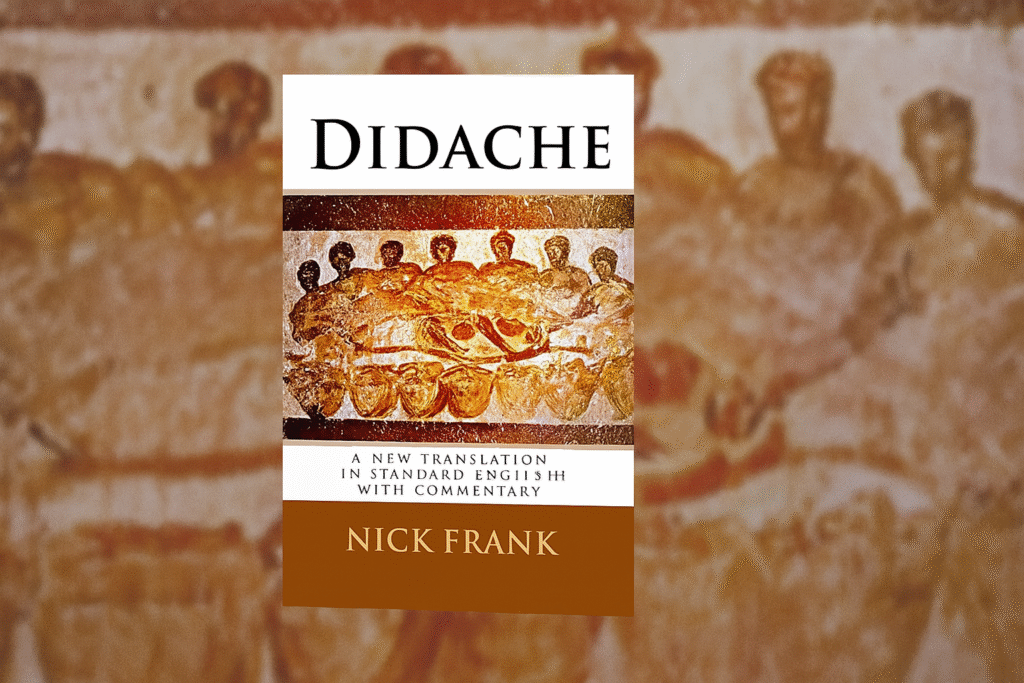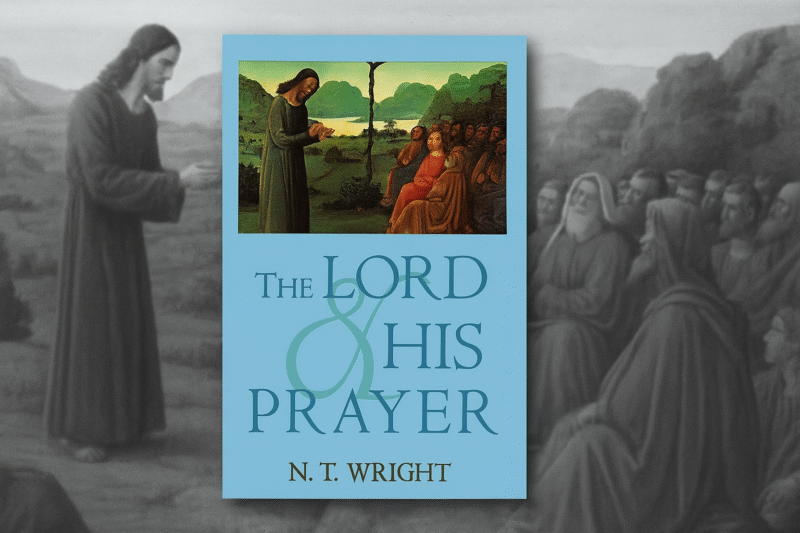
Sometimes old documents need to be translated in a fresh way to give us a new perspective. This review covers The Didache: A New Translation in Standard English with Commentary by Nick Frank. This published book is a fresh rendering and look of one of the earliest Christian writings we have as a church. While not as literal as Kirsopp Lake’s translation or as dynamically styled as Lightfoot’s, Frank’s version brings a new voice to an old trusted document—balancing accuracy with modern readability and commentary.
The Didache: A New Translation: A Fresh Look at an Ancient Text
Frank’s translation expands on the traditional formatting of the Didache, occasionally adding paragraph breaks for clarity and flow. This isn’t a word-for-word rendering in my opinion, perhaps more of a modern paraphrase at times, but it remains faithful to the original while offering thoughtful modern phrasing. What makes this version especially valuable is Frank’s insightful commentary throughout. This translation stays faithful and doesn’t take too many liberties.
Rediscovering the Roots of Faith
Frank writes, “It is a necessity, from time to time, for individuals and communities to revisit the records of their past, to re-examine the road they’ve traveled, and to discern a path for the future.” This is an accurate understanding of why the church needs to become more, not less acquainted with the Didache. In his introduction, Frank situates the Didache not just as a historical artifact but as a spiritual resource for navigating today’s complex religious landscape. The spiritual and religious landscape we face today is not all that different from that of the first and second centuries that produced The Didache.
Frank argues that the Didache is strikingly relevant to our time:
“The state of religion at the time the Didache was composed is very similar to that of the early twenty-first century. In the midst of a shopper’s bazaar of religious practices from every corner of the world… faith in Jesus was portrayed as a life’s commitment that required an exclusive dedication of one’s entire person.” (p. 3)
Accessible and Reflective Approach to The Didache
The translation of The Didache is accessible for readers of all backgrounds. The font is easy to read (around size 12), and the layout includes generous margins and thoughtful spacing. Frank’s commentary guides the reader into deeper reflection, offering context, clarity, and connection to contemporary church life.
Why I Read This Book
I read this translation of The Didache because I’m deeply interested in the roots of early Christian practice, especially how the first followers of Jesus understood discipleship, worship, and community life. I’ve studied other translations of The Didache, but I was drawn to Nick Frank’s version for its accessibility and thoughtful commentary. As I research the Lord’s Prayer for my doctoral project, this book was an engaging read. I wanted to see how this ancient text could speak into the challenges and rhythms of church life today, and how it might inform my own pastoral work, especially in relation to prayer, the Lord’s Table, and forming a simpler, more authentic expression of faith. I am sure this will find an appearance in my final project on the Lord’s Prayer, which the Didache deals with extensively.
Frank’s translation of the Lord’s Prayer is intriguing, and again, this is one of the places he is less literal, and in this case, more of a paraphrase, but it carries the imagery and meaning deeply and beautifully:
Our Divine Father, blessed be Your Name! May Your Kingdom come, That Your will may be accomplished perfectly upon the earth. Gather us today at the Messiah’s banquet. Forgive our failings as we forgive those who fail us. Do not let us be tested beyond our faith’s endurance, But protect us from all evil.Power and glory are yours forever.”
I think there are some translation liberties here that I would not have taken, but overall, it is a beautiful look at this familiar pattern of prayer, and it features connections to some significant theological ideas.
About Nick Frank
Over the years, Nick Frank has served in pastoral ministry and Christian education. He has long been influenced by the Didache and remains a devoted admirer of its teachings. His passion for this early Christian text is evident in this publication, which appears to be self-published. While I haven’t been able to find much information about Nick’s background or the publisher behind this book, it is available on Amazon, and I’m glad I picked it up.
A Worthy Addition to Your Library
So, if you’re interested in exploring The Didache for the first time or revisiting it with fresh eyes, Nick Frank’s translation offers something new. It brings forward the heart of early Christian faith—discipleship, worship, community, and the Lord’s teachings—in language today’s reader can fully engage. His perspective alone is reason enough to pick up this book.



